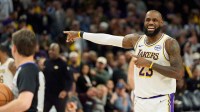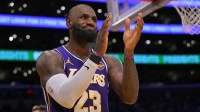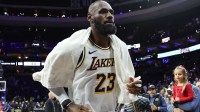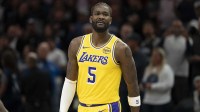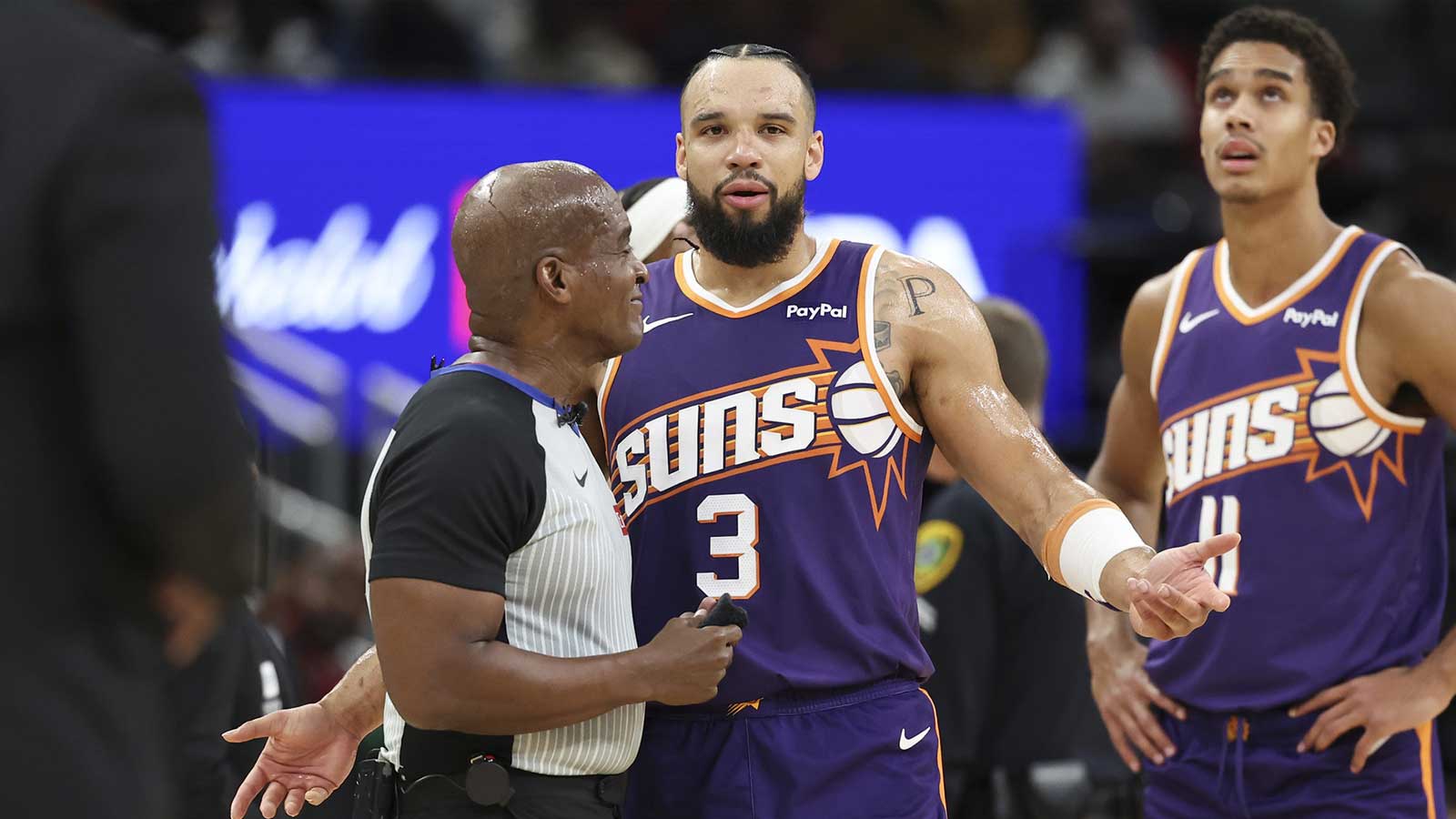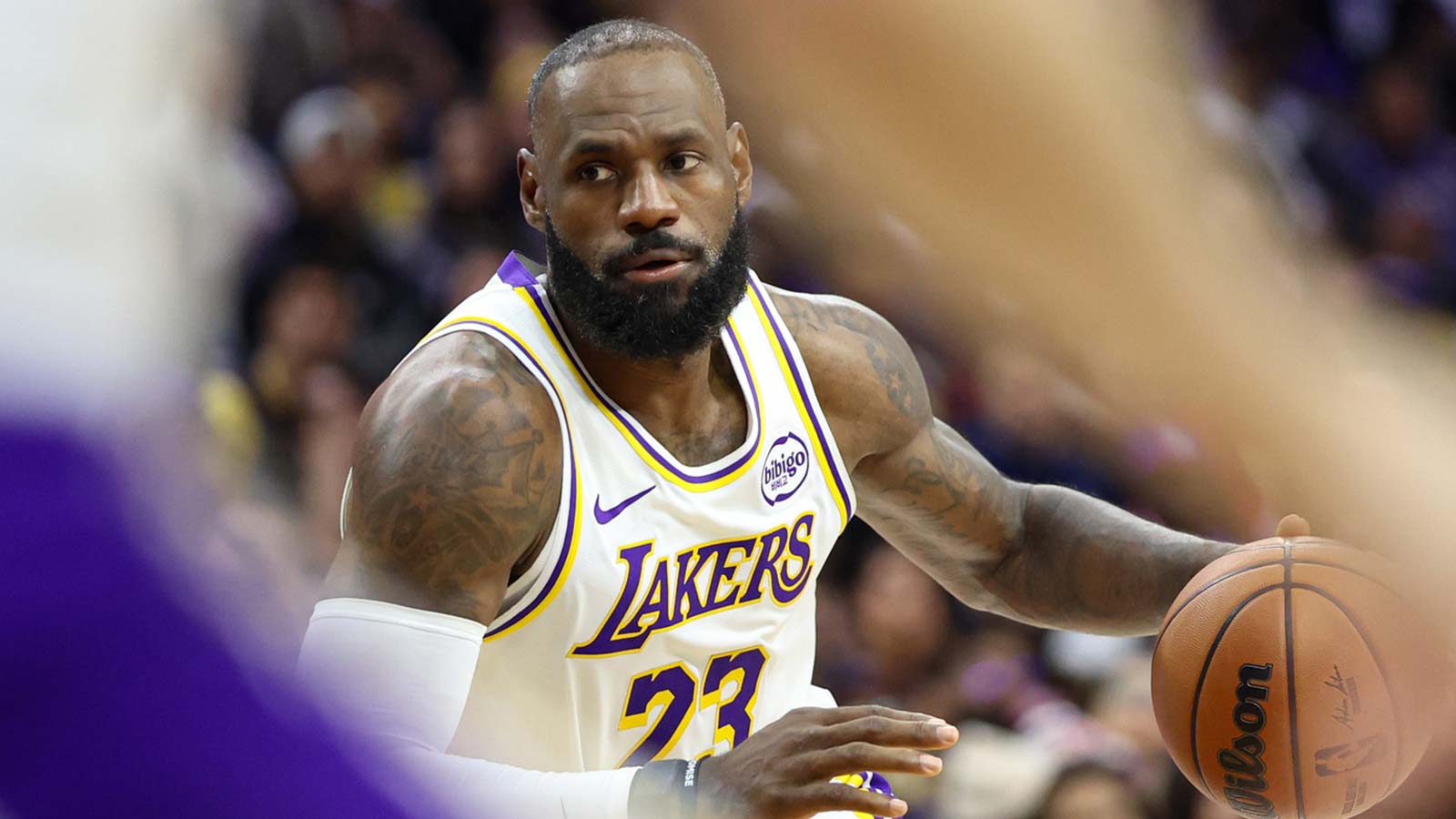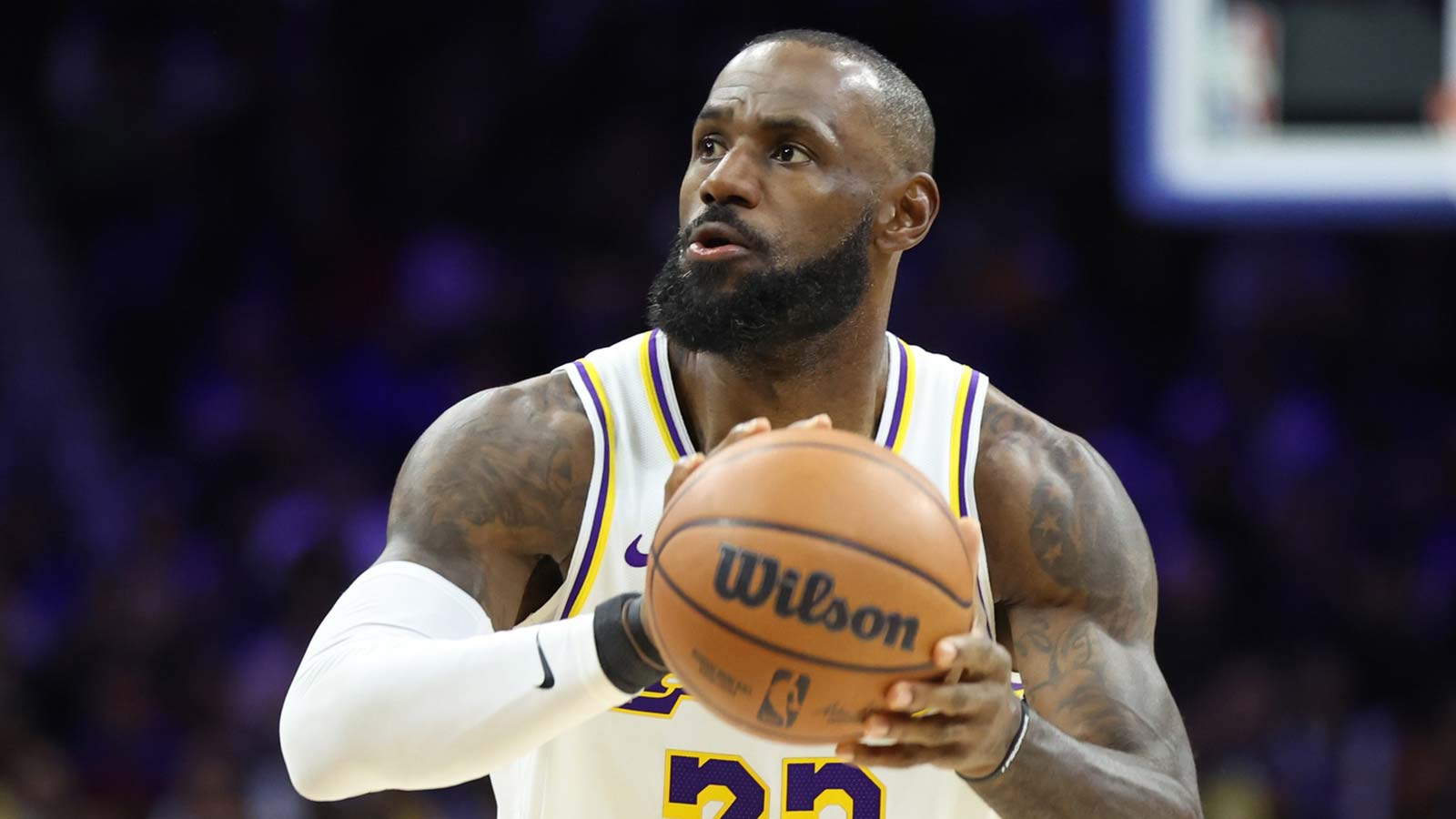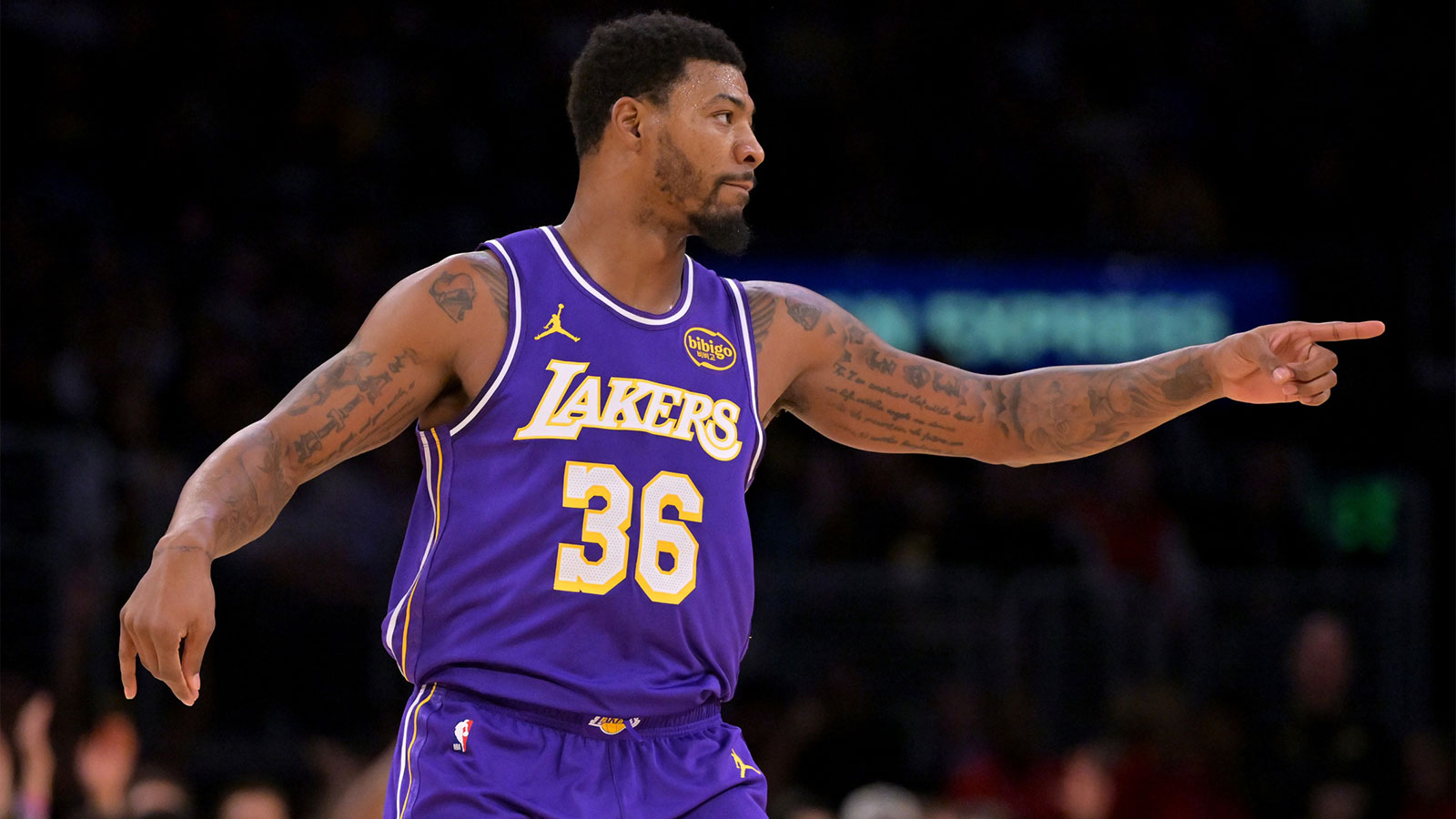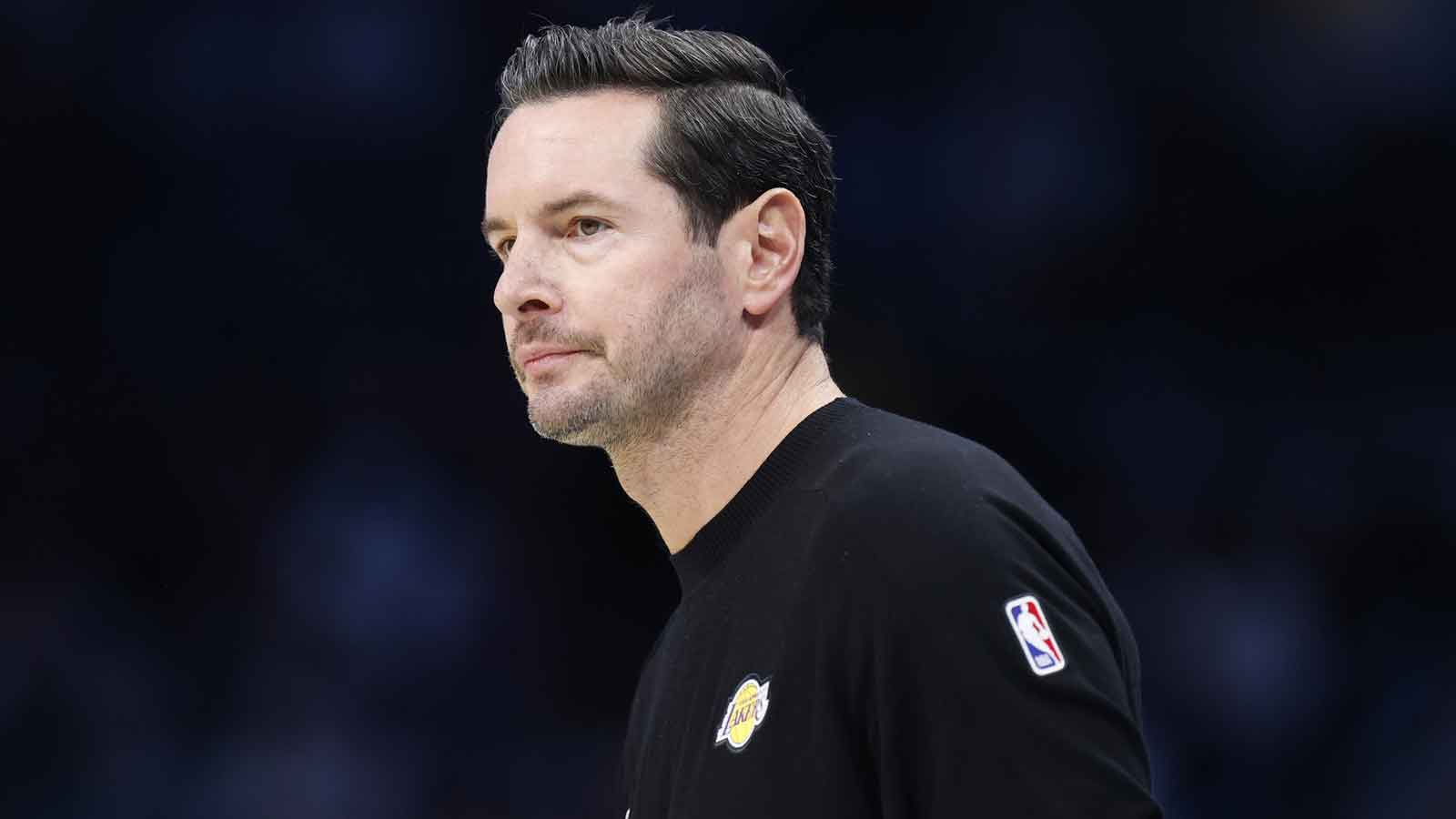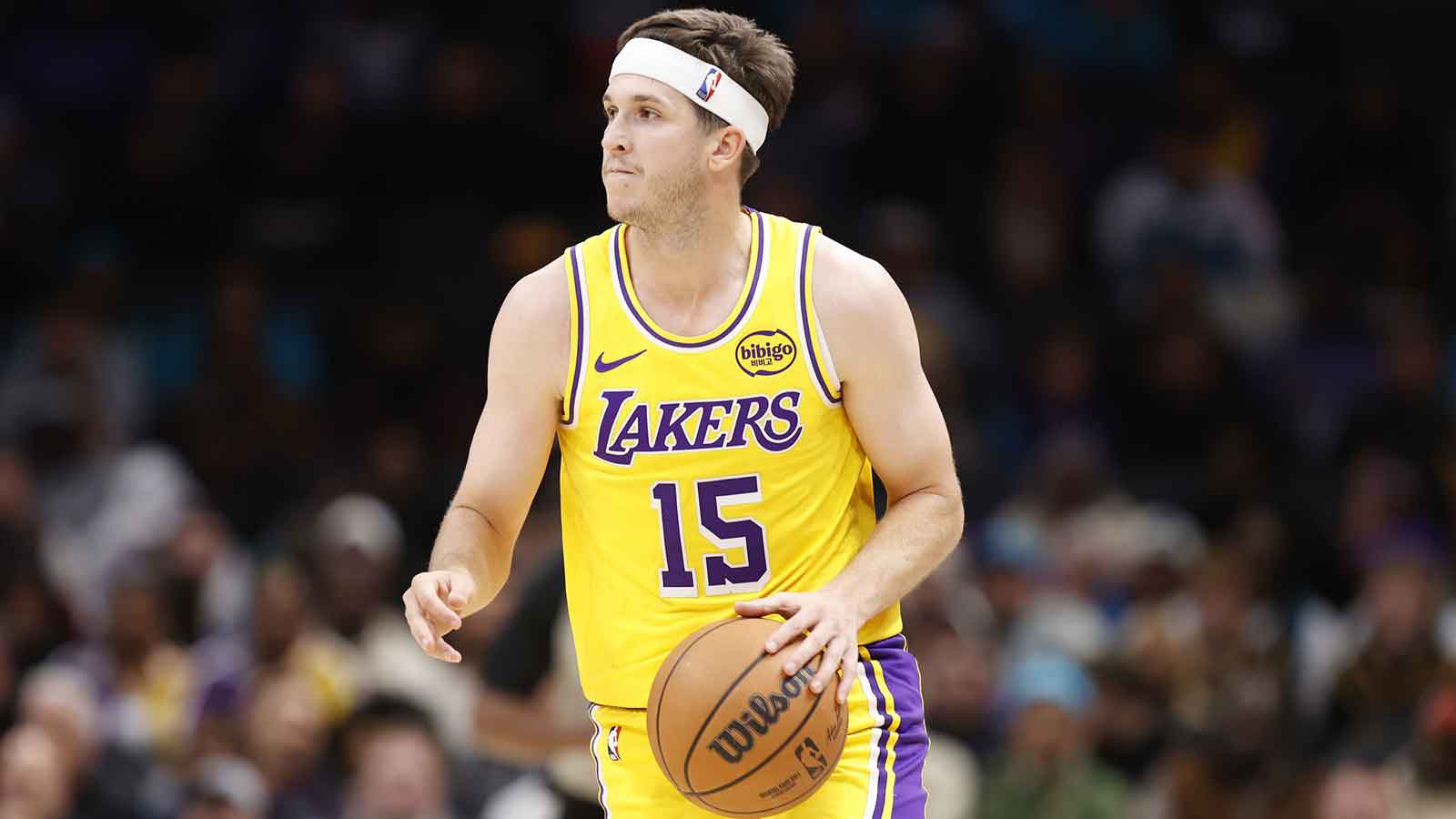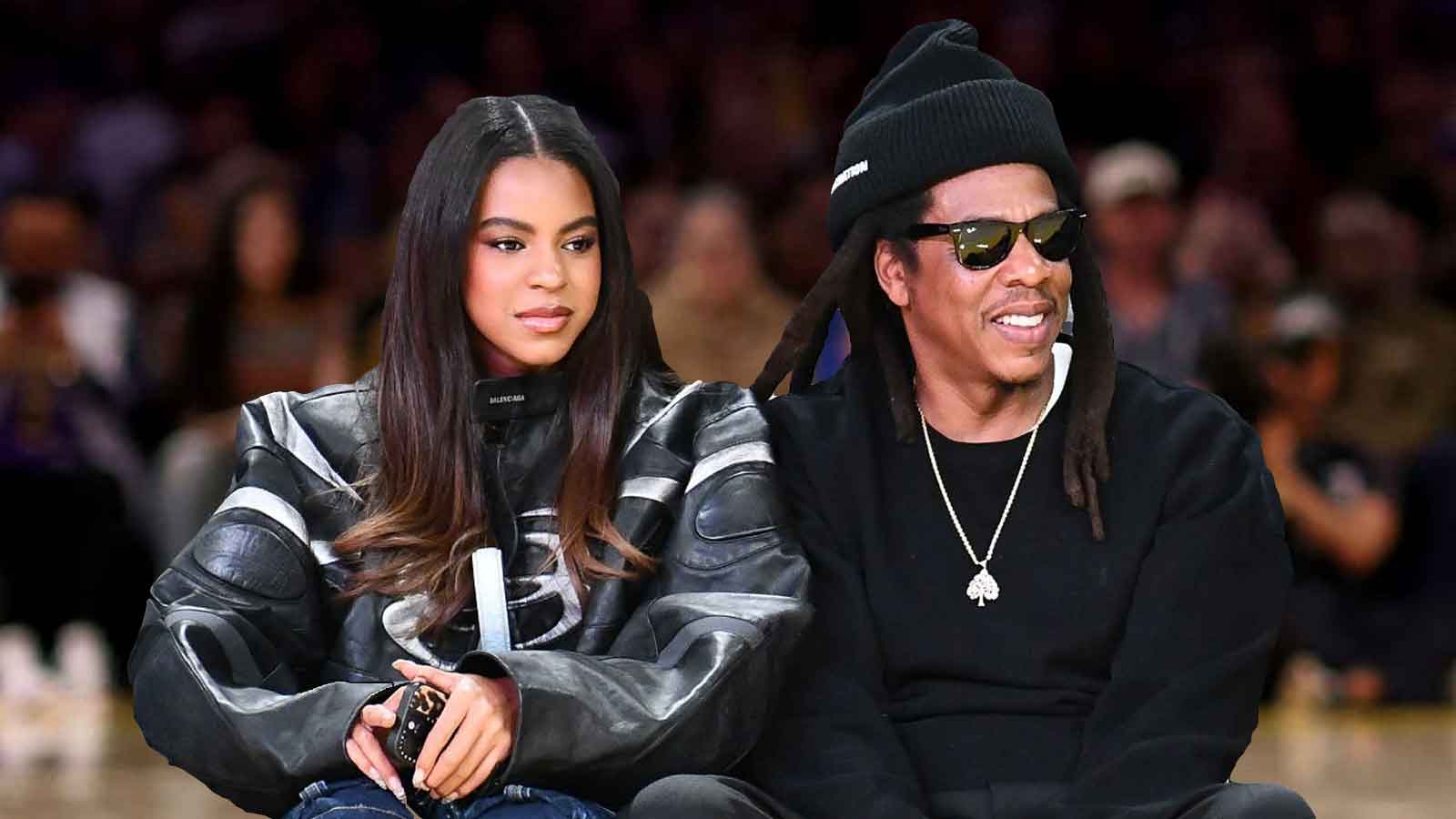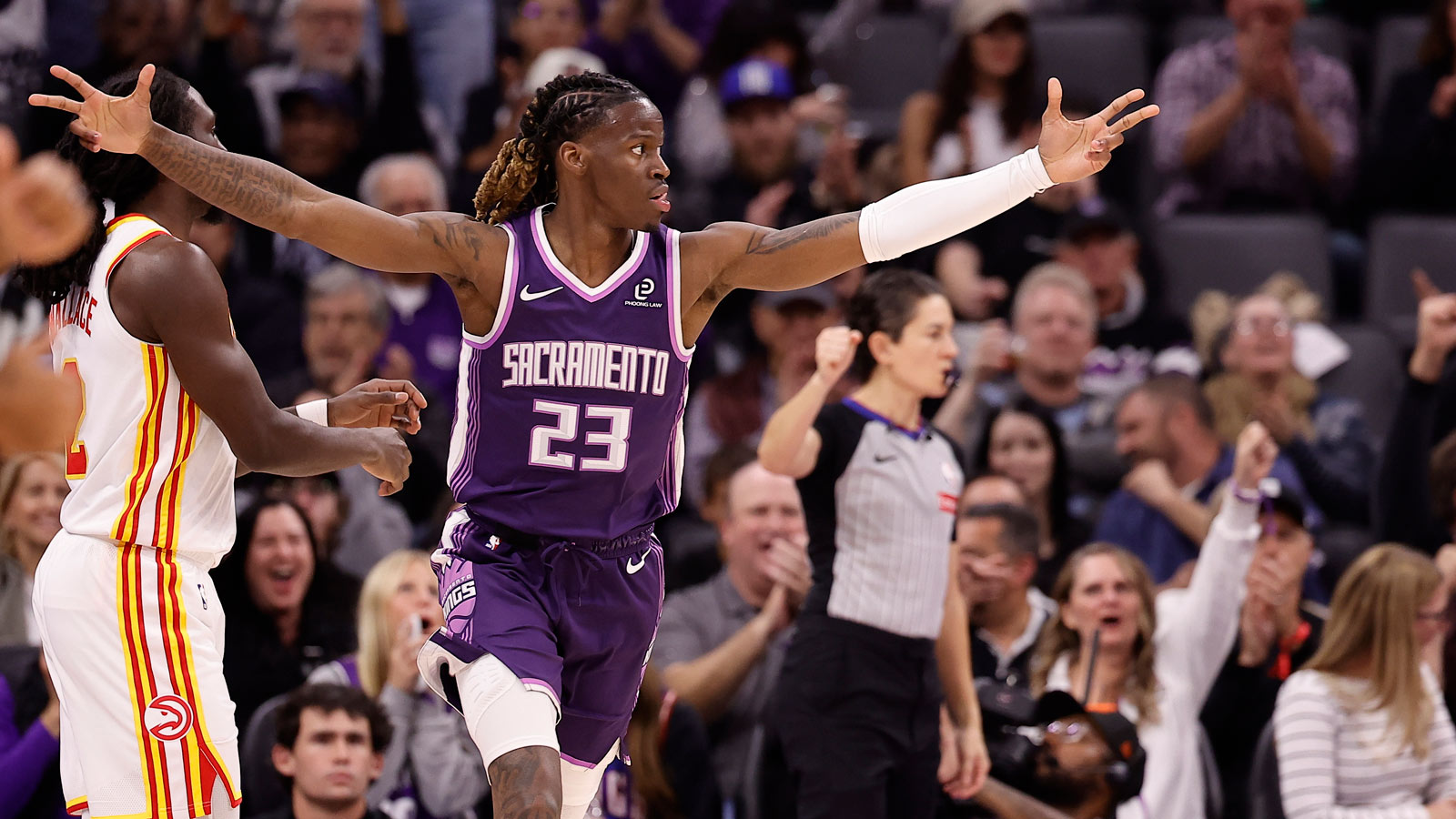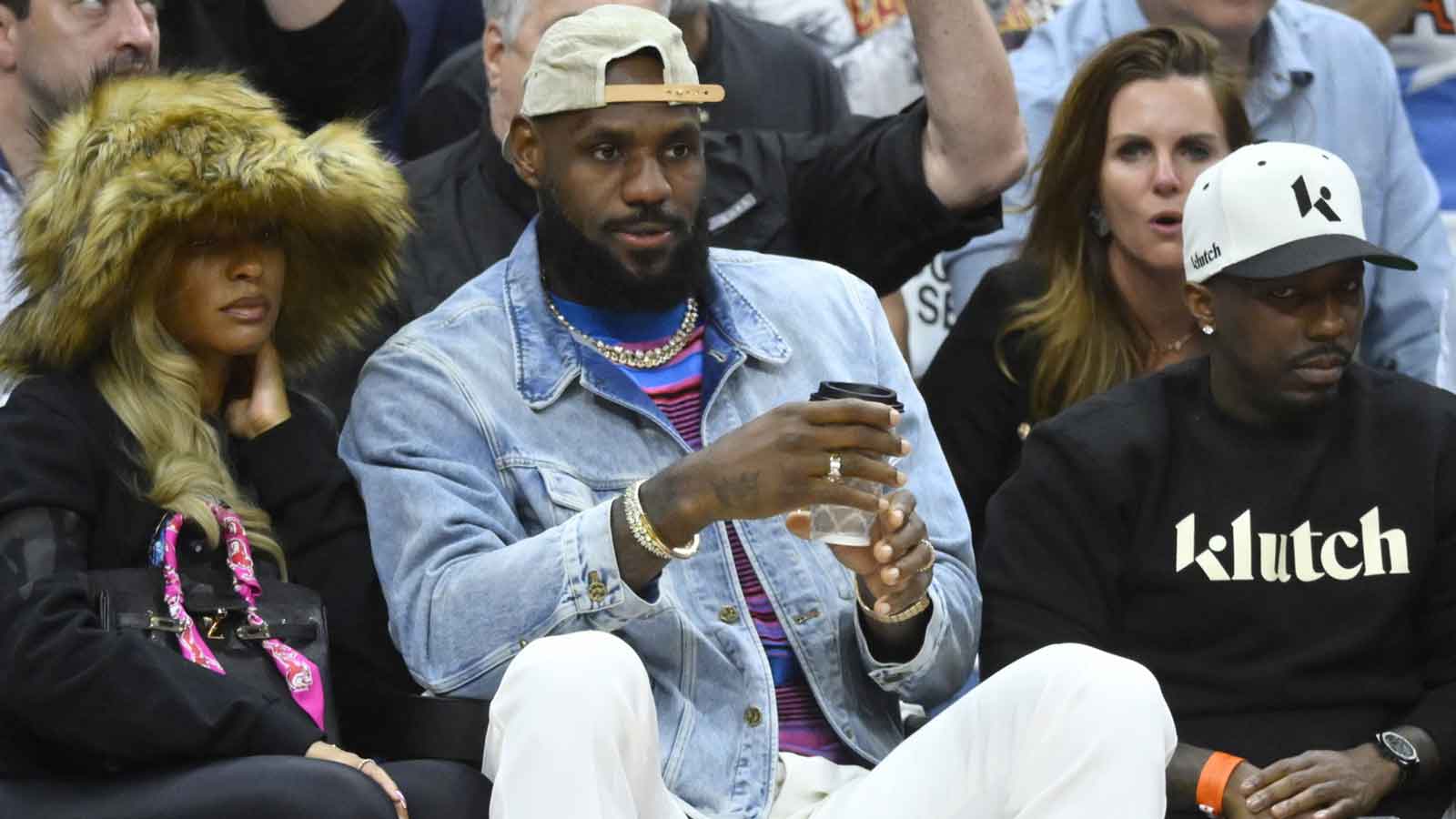After winning his fourth championship and Finals MVP with the Los Angeles Lakers, LeBron James said something that had been a running theme throughout the season: “I want my damn respect, too.”
He was aware of the talk that he had declined, especially after coming off a season where he missed 27 games due to injuries, the most in his 17-year career. A day later, he posted a picture of himself on Instagram, smoking a cigar while basking in victory after giving the Lakers their 17th title with a caption that made a similar point.
“I know they’ll make up another criteria that nobody else has ever had in the history of the game. But Guess what though, bring it on please!”
The interview and social media post hammered home the sentiment that James, who became just one of just four players in history to win three titles with three different teams, felt disrespected and wants people to give him his due. But this isn’t just about his inclusion on the list of the league’s greatest players of all time, which has long been secure. It’s about where he believes he should be on that list. James himself said after winning his third title with the Cleveland Cavaliers that he is “chasing a ghost that played in Chicago.”
But one thing that hasn’t helped him in that chase is his Finals record. James is just one of four players in NBA history with at least 10 Finals appearances. But those who refuse to put him ahead of Michael Jordan point to his 4-6 record in those appearances as one of the biggest reasons why he will never be the greatest player of all time. Jordan, they would be quick to point out, had an immaculate 6-0 record in the Finals while he was with the Chicago Bulls.
LeBron James, however, entered the Finals with his team as the favorite to win just four times out of 10, according to ESPN’s Basketball Power Index, especially against teams with multiple current and future Hall of Famers players on the San Antonio Spurs and Golden State Warriors, where he suffered five of his six Finals losses.
But what if the unthinkable happened and all his Finals appearances ended with James winning a championship? How would that affect his legacy and standing among the game’s greatest players, especially compared to Jordan? Winning 10 titles would put him next to Boston Celtics greats Bill Russell, who has 11, and Sam Jones, who has 10, as the players with the most number of championships. To some, that would cement his status as the game’s greatest player, especially considering the talent of the teams he faced in the Finals.
The Spurs had the likes of Tim Duncan, Tony Parker, Manu Ginobili, and a young Kawhi Leonard, and were mentored by Gregg Popovich, one of the greatest coaches in NBA history. The Warriors, meanwhile, have All-Stars in Stephen Curry, Klay Thompson, Draymond Green, Andre Iguodala, and Kevin Durant in their Finals duels in 2017 and 2018. That would also mean winning against other Hall of Famers in Dirk Nowitzki and Jason Kidd and erasing the Finals loss against the Mavericks, something which James admitted still burns him to this day. But even if he conquers these teams on the biggest stage, the question for some will inevitably turn to how he got to the Finals in the first place.
Throughout the season, the Lakers were expected to face Leonard and the Los Angeles Clippers in what was expected to be a thrilling Western Conference Finals, but the Denver Nuggets cut that dream matchup in half, overcoming a 3-1 series deficit and stunning the Clippers in the Conference Semifinals. Not facing the Clippers was something that was held against the Lakers, and so was facing the injury-riddled Heat and not a team led by back-to-back MVP Giannis Antetokounmpo and the Milwaukee Bucks in the Finals.
James winning 10 championships will invite doubts on whether he had easy paths to the Larry O’Brien trophy or not. For instance, the 2007 Spurs was only the third seed in the Western Conference, with Nowitzki (in his only MVP season) and the Mavericks and Steve Nash and the Phoenix Suns having better records. Did facing these teams make James' road to the title less challenging? Why didn’t the Heat face the three-peat-seeking Kobe Bryant and the Lakers in 2011? These criticisms will come, just as they have for the titles that James and his teams did win, never mind that they can only play the teams and players in front of them.
Aside from the question of which teams James faced on his way to 10 titles, another question that will be raised is who his teammates were. This is something that he has already faced, especially whenever a teammate of his makes a game-winning play. Why was it Ray Allen, for instance, who took and made the game-tying triple to force overtime in Game 6 of the 2013 Finals? Why was the ball in Kyrie Irving’s hands and not James’ in the final minute of Game 7 of the 2016 Finals? Why did James pass up the chance to win the series against the Heat in Game 5 of this year’s Finals, never mind if he had to shoot over three defenders?
This would make James’ hypothetical 2007 championship with the Cavaliers as arguably the most impressive, since it came in just his fourth season when he was just 22 years old. His supporting cast with that team would be the least talented that he has led to the title, with no other player averaging more than 15 points and Larry Hughes, Zydrunas Ilgauskas, and Drew Gooden as the only players averaging in double figures. The same could be said of his 2015 title, when he stopped a burgeoning Warriors dynasty in his tracks without All-Star teammates in Irving and Kevin Love, who went down with injuries during the playoffs.
For most of his Finals appearances, even the ones he lost, LeBron James has played with All-Star teammates, whether it's Dwyane Wade and Chris Bosh with the Heat, Irving and Love in Cleveland, or Davis with the Lakers. The ever shifting criteria that he hinted at in his Instagram post could shift to why he had to join forces with other talented players and leave the Cavaliers in order to win more titles. Why didn’t he just stay in Cleveland like Jordan did win Chicago, never mind that the best player he ever played with in those 2000's Cavaliers teams were Ilgauskas and Mo Williams.
But the biggest criticism that such a feat could have is about the state of the NBA itself and whether the talent level was the same as it was during the league's earlier eras or not. If James was able to plow his way through the rest of the league on his way to 10 titles, then what does that say about the rest of the league? How is the game being played now compared to the time of Jordan and other players considered the greatest? Could James have benefited from the more free-flowing style of the game today that places more importance on shooting? Would have still have won 10 championships when placed in a more rugged and physical era? This is similar to how ESPN’s Stephen A. Smith justified why James will never surpass Jordan earlier this month, when he called his era as the “softest we have ever seen.”
Even if he has championship rings on all his fingers instead of on just four, the case for James as the greatest of all time will still be debated. Some will still criticize him for that he was unable to do, whether it’s winning all his titles in Cleveland, doing it without the help of All-Star teammates, or playing in a different era, instead of appreciating what he has done.
That is part of the job when it comes to chasing that ghost in Chicago. No one understands that better than LeBron James himself, who knows that even now, there are those still denying his claim as the greatest. What he can do, then, is what he’s always done, and what he did last season with the Lakers: use it as motivation as he prepares for another climb atop the NBA mountain.




